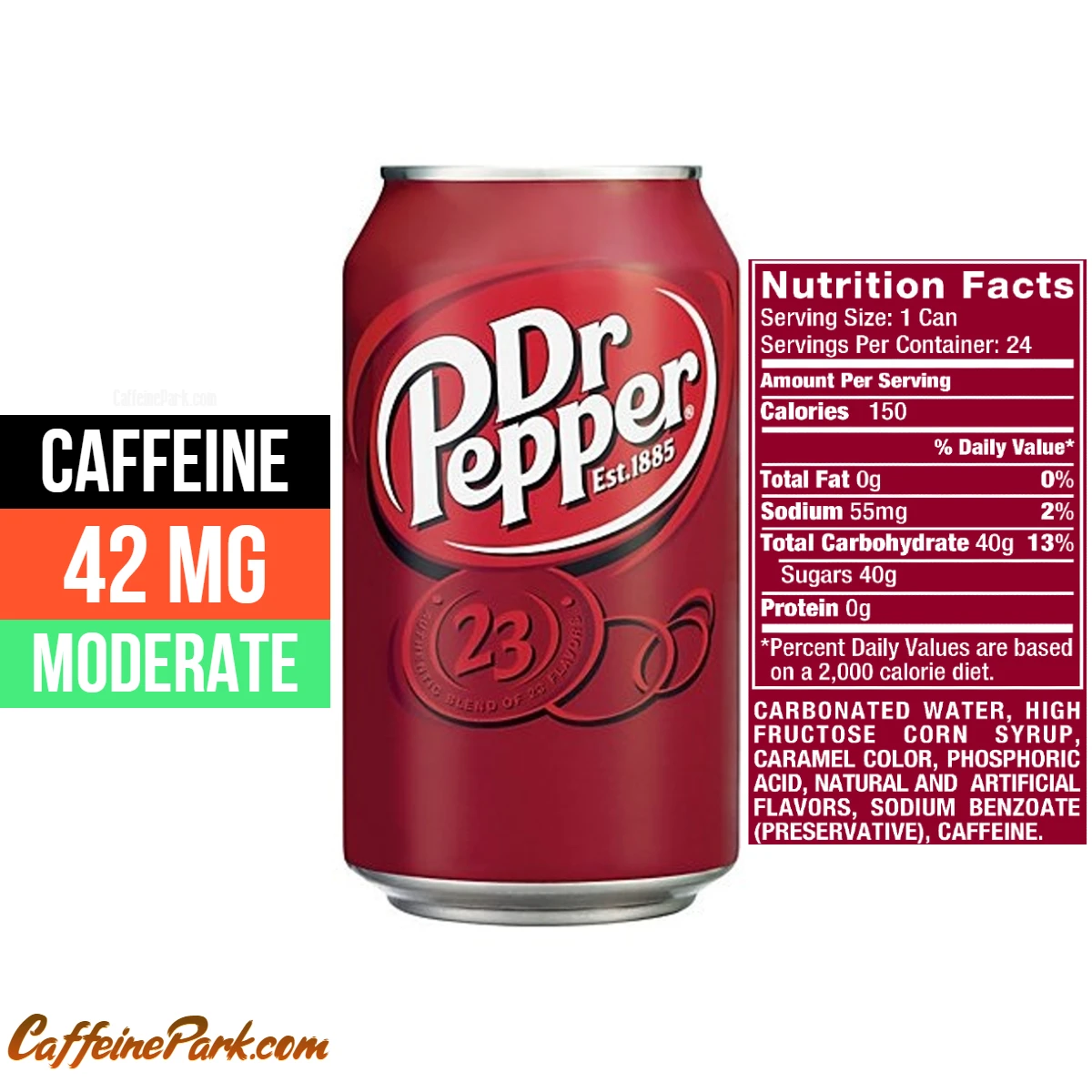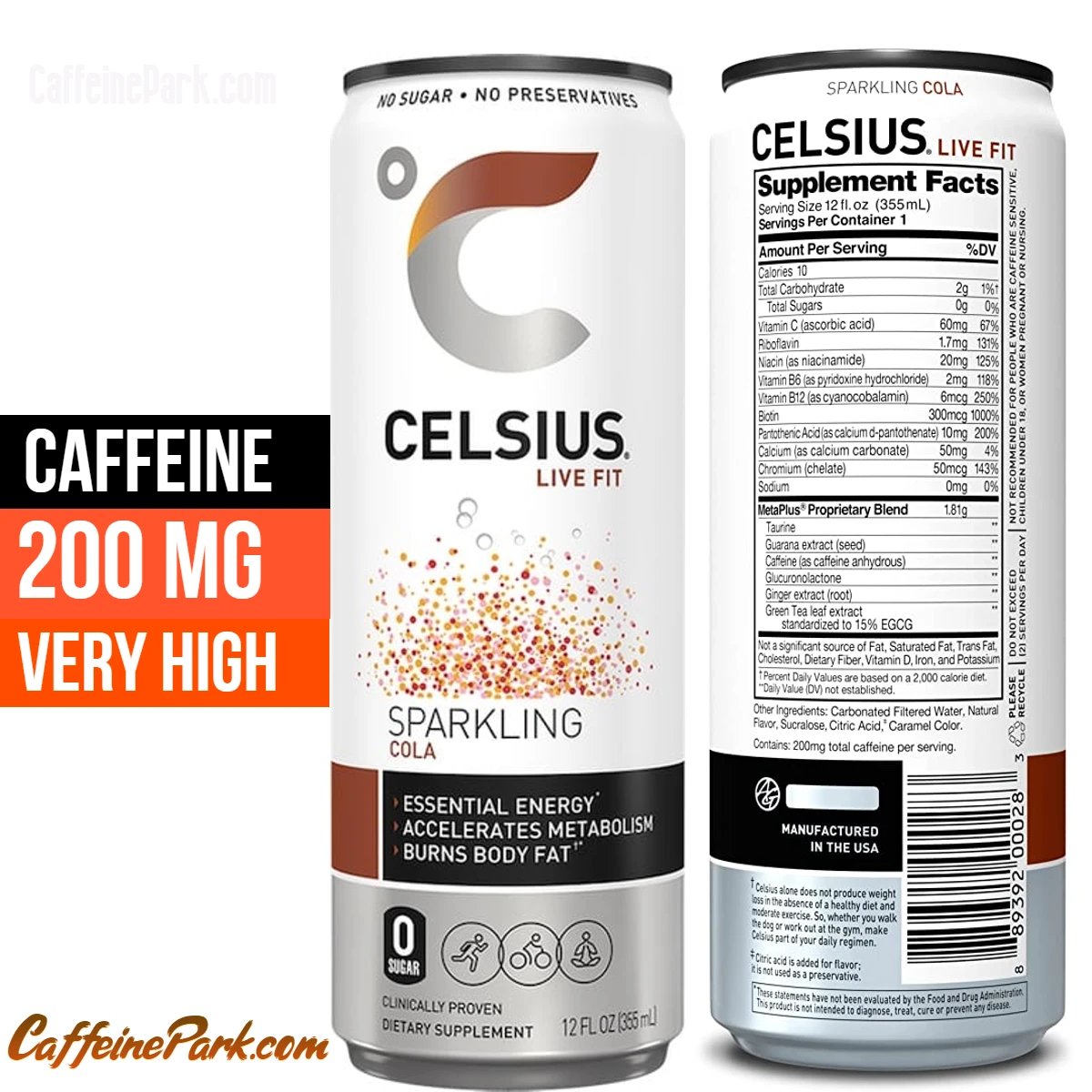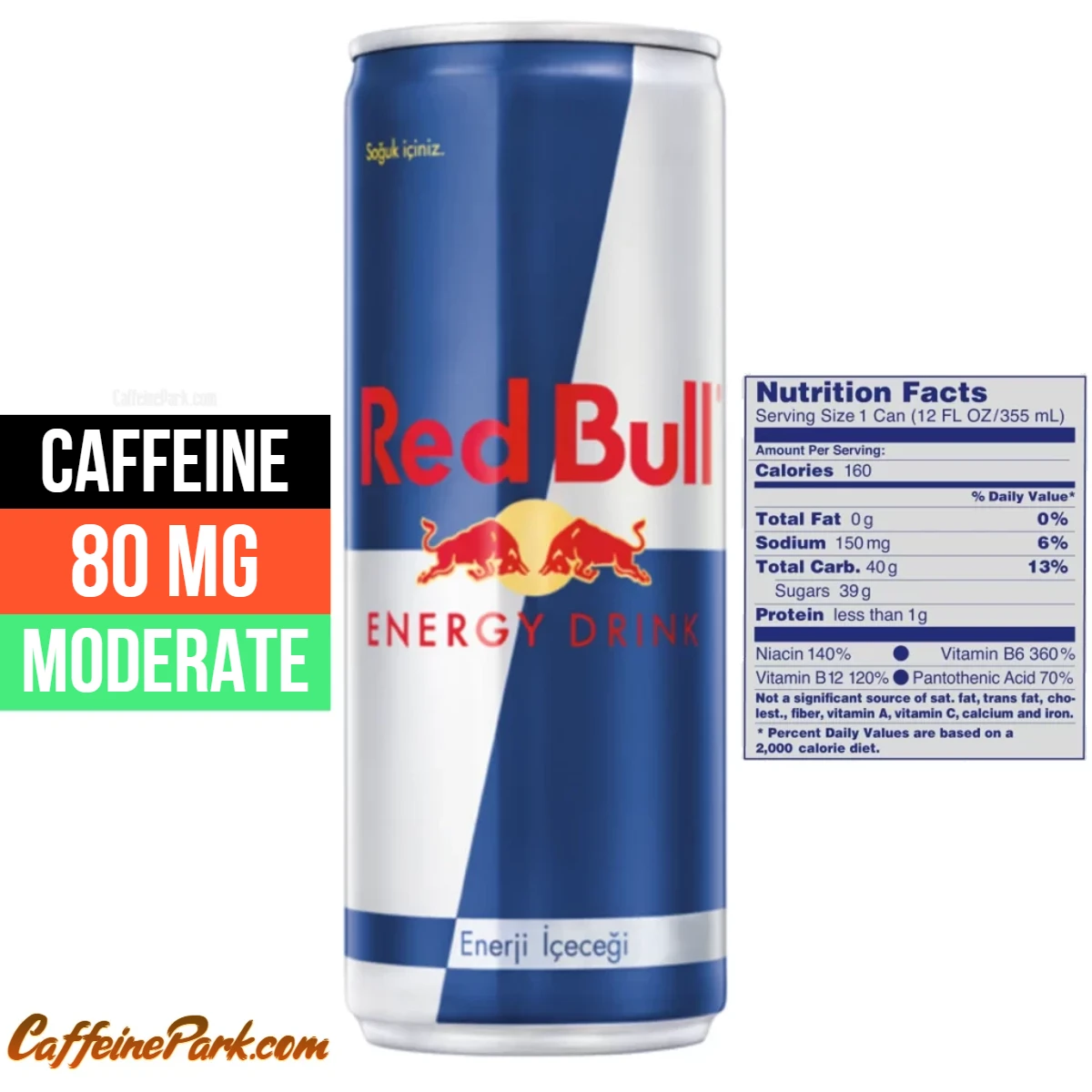
Lemonade is a classic and beloved beverage enjoyed all over the world. Its refreshing and tangy flavor makes it a popular choice for quenching thirst and adding a little bit of brightness to any occasion. While it is important to consume lemonade in moderation and be aware of its potential health risks, it can also have some potential health benefits due to its high vitamin C content and hydrating properties.
There are many variations of lemonade, and the ingredients and method of preparation can vary depending on the region and personal preference. Some people like to add other ingredients to their lemonade, such as mint, berries, or ginger, to give it a unique flavor.
Lemonade typically does not contain caffeine, as it is made from lemons, water, and sugar. Caffeine is a stimulant that is found naturally in some plants, and it is commonly added to beverages like coffee, tea, and soft drinks.
Let’s add that there are some caffeinated lemonade products on the market that are made with added caffeine. These products may be labeled as “energy lemonades” or “caffeinated lemonades” and may be marketed as a way to get a caffeine boost in a refreshing and fruity drink. However, these types of products are not as common as traditional lemonade.
Does lemonade have caffeine?
No, Lemonade does not naturally contain caffeine (Caffeine-free). If you are looking for a beverage that is caffeine-free, lemonade can be a good choice. If you want a beverage with caffeine, there are many other options available, including coffee, tea, and various types of soda.
Compare caffeine in some Lemone Products
| Serving size | Serving Size | Caffeine | Caffeine strength |
|---|---|---|---|
| Homemade lemonade | 8 fl oz (236 ml) | 0 mg | CAFFEINE-FREE |
| Minute Maid Lemonade | 8 fl oz (236 ml) | 0 mg | CAFFEINE-FREE |
| Amp Energy Active Lemonade | 12 oz can (355ml) | 160mg | Very High |
| Truly Lemon Tea Hard Seltzer | 12 fl oz (355ml) | 9 mg | LOW |
- Caffeine Amount: 0 mg
- Caffeine strength: CAFFEINE FREE
- Calories: 99
- Sugar: 25g
- Serving size: 8 fl oz cup (247grams)
How do you make homemade lemonade?
To make homemade lemonade, you will need lemons, water, and sugar. Here is a basic recipe you can follow:
Ingredients:
- 1 cup lemon juice (from about 6 lemons)
- 1 cup water
- 1/2 cup sugar
Instructions:
- In a small saucepan, bring the water and sugar to a boil over medium heat, stirring until the sugar has dissolved.
- Remove the syrup from the heat and let it cool.
- In a pitcher, combine the syrup and lemon juice.
- Add 4 cups of cold water to the pitcher and stir to combine.
- Taste and adjust the sweetness to your liking. You can add more water or more syrup as needed.
- Serve the lemonade chilled, over ice if desired.
- Can lemonade be made with other types of citrus fruit? Yes, lemonade can be made with other types of citrus fruit in addition to or in place of lemons. Some popular options include oranges, limes, and grapefruits. You can also mix and match different types of citrus fruit to create your own unique flavors.
Compare Caffeine in Lemonade vs coffee
When comparing the caffeine content of lemonade and coffee, there is a significant difference. Here’s a comparison of the caffeine levels in these two beverages:
- Lemonade: Lemonade is a caffeine-free beverage. Traditional lemonade, made from lemon juice, water, and a sweetener, does not naturally contain any caffeine. It is a popular choice for those who prefer to avoid or limit their caffeine intake. Lemonade is known for its refreshing and tangy flavor, making it a great option for staying hydrated without the stimulant effects of caffeine.
- Coffee: Coffee, on the other hand, is well-known for its caffeine content. The exact amount of caffeine in coffee can vary depending on factors such as the type of coffee bean, brewing method, and serving size. On average, an 8-ounce cup of brewed coffee contains approximately 95 milligrams (mg) of caffeine. However, it’s important to note that the caffeine content can be higher in certain types of coffee, such as espresso or specialty blends.
The disparity in caffeine levels between lemonade and coffee is quite significant. While lemonade is entirely caffeine-free, coffee contains a notable amount of caffeine. The caffeine in coffee acts as a stimulant, providing a boost of energy and increasing alertness. However, it’s important to consume coffee in moderation, as excessive caffeine intake can lead to adverse effects like restlessness, increased heart rate, and difficulty sleeping.
Review
Lemonade is a refreshing and tangy beverage made from lemon juice, water, and sugar. It is typically served cold and is enjoyed in many countries around the world.
History
Lemonade has a long and varied history dating back to ancient times. The ancient Egyptians are credited with creating the first known form of lemonade, which was made with honey and water and used as a medicinal drink.
Lemonade, as we know it today, originated in Europe in the Middle Ages. At that time, lemons were a luxury item and were used to make a variety of drinks, including a type of lemonade made with lemon juice, sugar, and water.
In the 17th and 18th centuries, lemonade became a popular drink in France and other parts of Europe. It was often served at carnivals and other public events and was considered a refreshing and fashionable beverage. Today, lemonade is enjoyed all over the world and is a staple of summertime refreshment.
Taste
Lemonade has a refreshing and tangy flavor that is typically described as sour and sweet. The flavor of lemonade is predominantly citrus, with a balance of sourness from the lemon juice and sweetness from the sugar. The flavor of lemonade can vary depending on the type of lemons used and the amount of sugar added. Some variations of lemonade may also include
additional flavors from ingredients like other fruit juices, herbs, or spices. The overall taste of lemonade is generally described as refreshing and invigorating, making it a popular choice for quenching thirst on hot days.
Ingredients and Preparation
Lemonade is typically made with just a few simple ingredients: lemon juice, water, and sugar. The exact proportions of these ingredients can vary depending on personal preference and the type of lemonade being made.
To make lemonade, the lemon juice is mixed with water and sugar to create syrup. The syrup is then mixed with additional water to create the finished lemonade. Some variations may also include ingredients like other fruit juices, herbs, or spices.
Lemonade can be made at home by combining the ingredients in a pitcher or by using a lemonade concentrate. It can also be purchased ready-made at stores and restaurants.
Types of Lemonade
There are many different types of lemonade, each with its own unique flavor and characteristics. Some common types of lemonade include:
- Classic lemonade: This is the most basic and traditional form of lemonade. It is made with lemon juice, water, and sugar and is typically served cold.
- Flavored lemonade: This type of lemonade is made with additional ingredients to give it a unique flavor. Popular flavors include raspberry, strawberry, and peach.
- Sparkling lemonade: This type of lemonade is made with carbonated water, giving it a bubbly and refreshing quality.
- Frozen lemonade: This type of lemonade is made with lemon juice and sugar, and is then frozen to create a slushy, ice-like consistency.
- Virgin lemonade: This type of lemonade is made without alcohol, making it a good choice for children or designated drivers.
Health Benefits and Risks
Lemonade has some potential health benefits due to its high vitamin C content and its ability to help hydrate the body. However, it is important to keep in mind that lemonade can also be high in sugar, which can have negative health effects if consumed in excess.
Some possible health benefits of lemonade include:
- Boosting the immune system: Lemonade is a good source of vitamin C, which is an important nutrient for maintaining a healthy immune system.
- Aiding in digestion: Lemon juice has a high acid content, which can help to stimulate the production of digestive juices and improve digestion.
- Relieving sore throat: The citric acid in lemonade can help to break down phlegm and relieve sore throat symptoms.
- Reducing inflammation: Lemonade has been shown to have anti-inflammatory properties due to its high vitamin C content.
Some possible risks of consuming lemonade include:
- Tooth enamel erosion: The acidity of lemonade can be harmful to tooth enamel over time, leading to erosion and an increased risk of tooth decay.
- Weight gain: Lemonade is high in sugar, which can contribute to weight gain if consumed in excess.
- Blood sugar spikes: The sugar in lemonade can cause spikes in blood sugar levels, which can be harmful to those with diabetes or at risk for diabetes.
It is important to consume lemonade in moderation and to be aware of any potential health risks. If you are concerned about the sugar content of lemonade, you can try using a sugar substitute or reducing the amount of sugar you use in your recipes.
Serving and Pairing
Lemonade is typically served cold, over ice. It can be enjoyed on its own or paired with food as a refreshing drink. Some popular pairings with lemonade include:
- Grilled foods: Lemonade can be a refreshing accompaniment to grilled meats and vegetables.
- Fried foods: The tangy flavor of lemonade can help to cut through the richness of fried foods.
- Spicy foods: Lemonade can help to cool the palate and alleviate the heat of spicy foods.
Lemonade is also a popular choice for outdoor events and gatherings, as it is easy to make in large quantities and is a refreshing choice for hot weather.
Alternative to Lemonade
If you’re looking for an alternative to lemonade, there are several refreshing options available. Here are a few popular choices:
- Iced Tea: Iced tea is a classic and versatile beverage that comes in various flavors, such as black tea, green tea, or herbal infusions. It can be sweetened or unsweetened based on your preference and provides a cooling and thirst-quenching experience.
- Fruit Infused Water: Create your own customized flavored water by infusing it with slices of your favorite fruits like strawberries, oranges, cucumbers, or mint leaves. This healthy and hydrating alternative offers a hint of natural flavor without added sweeteners or caffeine.
- Flavored Water: Explore the wide range of flavored water options available in stores. These beverages come in various fruit-infused or naturally flavored varieties, offering a light and refreshing taste without caffeine.
- Sparkling Water: Sparkling water, either plain or with a hint of natural fruit flavors, can be a great substitute for lemonade. The carbonation provides a bubbly sensation, while the absence of caffeine and added sugars makes it a healthier choice.
- Fruit Smoothies: Blend together your favorite fruits, such as strawberries, mangoes, or pineapples, with some ice and a splash of fruit juice or yogurt for a delicious and nutritious drink. Fruit smoothies are a fantastic way to enjoy the flavors of fruits while staying hydrated.
- Coconut Water: For a tropical twist, opt for coconut water. It is a natural and electrolyte-rich beverage that provides a subtly sweet and refreshing taste. Coconut water is a great choice for replenishing hydration.
- Herbal Infusions: Explore the world of herbal infusions like chamomile, peppermint, or hibiscus tea. These caffeine-free options offer a wide range of flavors and can be enjoyed hot or iced, depending on your preference.
FAQs
No, lemonade does not contain caffeine. Lemonade is typically made from lemon juice, water, and a sweetener such as sugar or honey. It is a caffeine-free beverage that can be enjoyed by individuals who prefer to avoid or limit their caffeine intake.
In general, traditional lemonade recipes do not include caffeine as an ingredient. However, it’s always important to read the labels or ingredient lists of specific brands or flavored varieties of lemonade. Some commercial lemonade products may have added ingredients, flavors, or enhancements that could potentially include caffeine. Checking the label will provide you with accurate information about the caffeine content of the specific lemonade you’re interested in.
Yes, caffeine can be added to lemonade by adding a caffeinated ingredient to the drink. For example, you could add a shot of espresso to your lemonade to give it a caffeine boost. However, this would not be considered a typical or traditional recipe for lemonade.
Yes, lemonade is a good choice for someone trying to avoid caffeine as it does not naturally contain caffeine and does not typically have caffeine added to it. If you are looking for a caffeine-free beverage, lemonade can be a refreshing and satisfying choice.
Yes, there are some caffeinated lemonade products on the market that are made with added caffeine. These products may be labeled as “energy lemonades” or “caffeinated lemonades” and may be marketed as a way to get a caffeine boost in a refreshing and fruity drink. However, these types of products are not as common as traditional lemonade.
Knowing the caffeine content of lemonade is helpful for individuals who are sensitive to caffeine, following a caffeine-restricted diet, or simply prefer to enjoy beverages that do not contain caffeine. Being aware of the caffeine content allows you to make informed choices about the beverages you consume, ensuring they align with your personal preferences and health goals.
Absolutely! Lemonade is a fantastic caffeine-free alternative to various beverages. Its tangy and refreshing taste makes it a popular choice for those seeking a flavorful and hydrating option without the stimulating effects of caffeine. Whether you’re looking for a non-caffeinated option for quenching your thirst, accompanying a meal, or enjoying during social gatherings, lemonade provides a delightful choice that can be enjoyed by all ages.
Does lemonade give you energy?
Lemonade does not contain caffeine, which is a stimulant that is often used to help increase energy levels. Lemonade is a refreshing and hydrating beverage, but it is not typically consumed for the purpose of increasing energy.
While lemonade may not give you energy in the same way that caffeine does, it can still be a good choice for hydration and can help you feel more alert and refreshed. If you are looking for a beverage to help increase your energy levels, you may want to consider a caffeinated drink like coffee, tea, or an energy drink.
Does drinking lemonade help ease your stress?
There is no scientific evidence to suggest that drinking lemonade can directly help to ease stress. However, some people may find that the refreshment and hydration provided by lemonade can help them feel more relaxed and rejuvenated, which could potentially have a positive impact on stress levels.
It is also possible that the act of taking a break to enjoy a refreshing drink like lemonade could help to reduce stress by providing a moment of relaxation and mindfulness. Overall, while lemonade may not have a direct effect on stress, it can be an enjoyable and refreshing choice for helping you to relax and feel more refreshed.
Is it ok to drink lemonade or lemon juice every day?
Lemonade and lemon juice can be part of a healthy diet when consumed in moderation. Lemons are a good source of vitamin C and other nutrients, and adding lemon juice or lemonade to your diet can help to increase your intake of these nutrients. However, it is important to keep in mind that lemonade can be high in sugar, and consuming large amounts of lemonade or lemon juice every day could lead to an excess intake of sugar.
It is generally recommended to consume lemonade or lemon juice in moderation as part of a balanced diet. If you are considering adding lemonade or lemon juice to your daily routine, it is a good idea to speak with a healthcare provider or a registered dietitian to ensure that it is a safe and appropriate choice for you.
What happens if you drink too much lemonade?
Drinking too much lemonade can lead to an excess intake of sugar and calories, which can contribute to weight gain and other negative health effects. Consuming large amounts of lemonade can also lead to digestive issues, such as heartburn and acid reflux, due to the high acid content of lemon juice.
In addition, the acidity of lemonade can be harmful to tooth enamel over time, leading to erosion and an increased risk of tooth decay. It is important to consume lemonade in moderation and to be aware of the potential negative effects of consuming large amounts of this beverage. If you are concerned about your lemonade consumption, it is a good idea to speak with a healthcare provider for guidance.
Does lemon keep you up at night?
Lemons do not contain caffeine, which is a stimulant that can interfere with sleep and cause insomnia. Therefore, it is unlikely that drinking lemonade or consuming other products made with lemon would cause you to have difficulty sleeping.
That being said, it is possible that the acidity of lemons could contribute to heartburn or acid reflux, which could potentially disrupt sleep. If you experience digestive issues after consuming lemonade or other products made with lemon, it may be helpful to avoid consuming these products close to bedtime to minimize the risk of disrupted sleep.
Overall, while lemonade is not likely to cause insomnia on its own, it is important to pay attention to how your body reacts to any food or beverage and to make changes to your diet as needed to ensure a good night’s sleep.
Read More:





